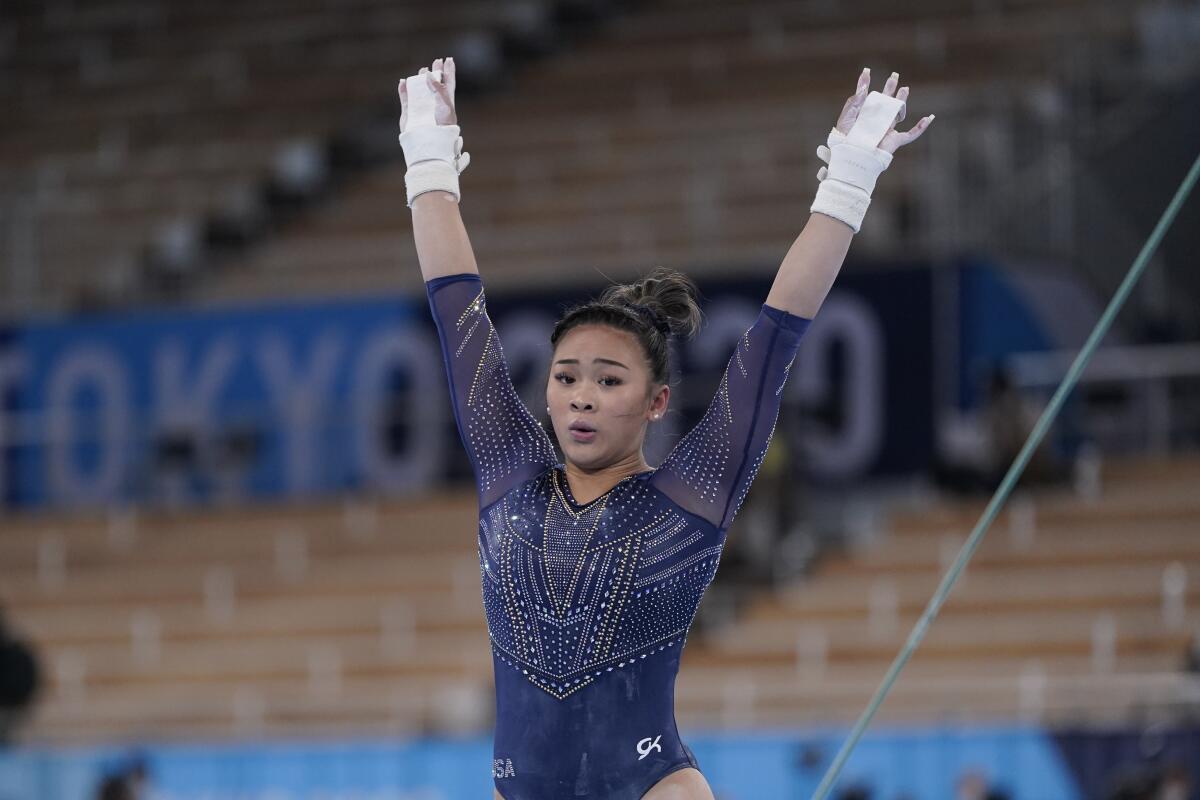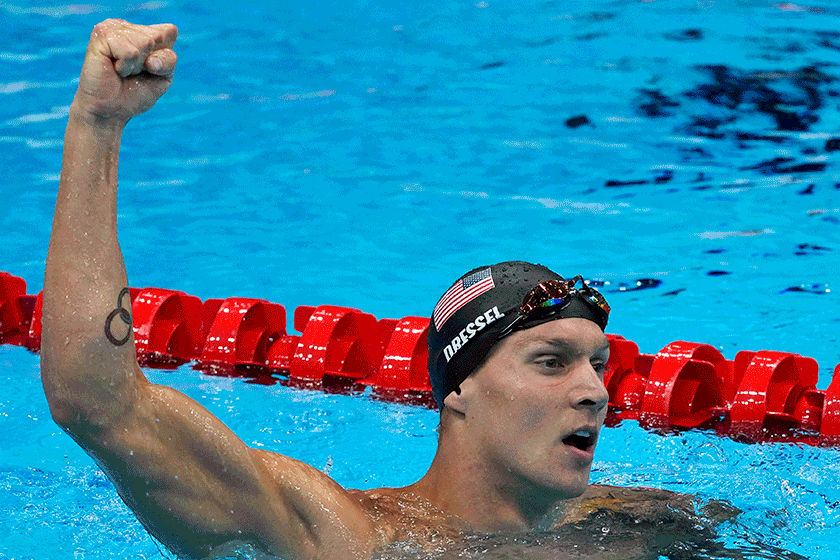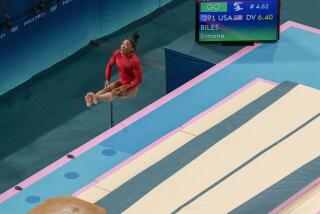Column: U.S. gymnast Suni Lee adds bronze to her gold and silver

- Share via
TOKYO — A bronze medal in the uneven bars final on Sunday completed Suni Lee’s set of Tokyo Olympics hardware, complementing the gold she won in the all-around event and the silver she earned in the team competition. Yet, Lee still felt she was missing something important: the satisfaction of meeting her own high standards.
The uneven bars, treacherous though they can be when gymnasts twist and fly between them, are Lee’s favorite apparatus, and she has mastered some of the most difficult routines in the world. But on Sunday, finding herself too close to the bar after a release move, she omitted some of the high-scoring connections she usually performs to make her routine coherent and intricate. Committing mistakes on the uneven bars bothers her more than faltering on any other event.
“It’s really cool,” she said of her set of medals. “I just wish the bronze medal was a beam medal or something, not bars.”
Although her medal wasn’t the one she wanted, she was still a winner by any definition. She has been pulled in many different directions lately and has gained thousands of new friends since winning the all-around title last week. She also slid down the social media rabbit hole to read comments about herself.
But like the champion she has become, the 18-year-old from St. Paul, Minn., has found ways to adjust. Most of her social media apps will be deleted, but she will persevere.
“I’m really proud of myself for staying with it because there were so many times in my bars routine I could have just [given] up and just jumped off, but I didn’t and now I have a bronze medal,” said Lee, whose score of 14.500 trailed the 15.2 Belgium’s Nina Derwael received for a sharp routine and the 14.833 earned by Anastasiia Iliankova of the Russian Olympic Committee.
On the final day of swimming, Caeleb Dressel wins golds in the 50-meter freestyle and the 4x100 medley relay to cap off an impressive Olympic performance.
“I think I put too much pressure on myself, and also I feel I kind of got distracted and lost focus a little bit when I won the gold medal,” Lee added. “Also, I just felt like I wanted to make everybody else happy just because I feel bars is like my thing and a lot of people were really rooting for me. And I kind of feel I let people down, but that’s OK.”
She hasn’t let anyone down. In fact, she has enlivened the competition in the absence of five-time Rio Olympic medalist Simone Biles, who has been experiencing a sense of spatial disorientation that compromises her safety when she twists and tumbles.
Biles, citing a need to protect her physical and mental well-being, withdrew from the all-around event and three of four event finals in which she qualified. The balance beam final on Tuesday is her last chance to add to the team silver medal, which her teammates won without her — and yet for her.
MyKayla Skinner of Gilbert, Ariz., silver medalist in the vault final on Sunday, has a feeling Biles will return for the balance beam final. “That’s the game plan,” Skinner said.
Skinner’s own plans changed dramatically when Biles pulled out of the vault final. For Skinner, silver in the vault was as good as gold.
An alternate to the 2016 U.S. Olympic team, Skinner came to hate gymnastics under the restrictive reign of former national team coordinator Martha Karolyi. Skinner gladly left behind the tension of elite competition for college gymnastics at Utah, where her enjoyment of the sport was reborn and she decided to make another run at the Olympics. She overcame COVID-19 and pneumonia last winter to earn a trip to Tokyo as an event specialist, separate from the team, but she was frustrated again when she didn’t automatically qualify for an event final.
She thought her Games were over and had shifted out of a competition mindset until team officials told her on Saturday that she’d replace Biles in the vault competition. Skinner seized the unexpected gift, leading off on Sunday with two solid vaults that averaged 14.916 points and watching anxiously while everyone else tried to top her. Only all-around runner-up Rebeca Andrade of Brazil (15.083) succeeded. Yeo Seojeong of South Korea (14.733) won the bronze.
“I was actually going to get on a plane to go home. I wasn’t expecting any of this to happen,” said Skinner, who dubbed herself and Biles the “Old Grandmas” of the U.S. delegation because they’re the oldest at 24. “This has seriously just been so humbling, and I’m just so grateful to be here.”
Jade Carey of Phoenix had an unfortunate experience in the vault final. She tripped during her run-up and saved herself from injury on sheer instinct, doing a simple warmup-caliber vault. Shaken, she landed her second vault badly and averaged 12.416 to finish eighth.
“Honestly, it was a fluky thing,” Skinner said. “It’s so disappointing. We should have both been on the podium stand. That’s so horrible to have to go through something like that when you’ve made it this far, you’re at the Olympic Games.”
In the men’s event finals, Max Whitlock of Britain repeated as pommel horse champion with a score of 15.583. Alec Yoder of the U.S. finished sixth at 14.566. Ukrainian-born Israeli Artem Dolgopyat won the floor exercise gold medal on the second tiebreaker (his difficulty score) over Rayderley Zapata of Spain. Yul Moldauer of Wellington, Colo., the lone American entrant, finished sixth but was inspired enough to say he planned to begin learning new, higher-scoring skills by next weekend.
“This has motivated me like no other,” he said. “We’ve got to ramp up and get ready for world championships. We’ve got to add difficulty. It’s time to show that the U.S. is a strong team.”
The U.S. women have been impressive without Biles contributing to the medal count. They’ve excelled while Biles has taken time to heal, and that’s the best anyone can hope for from an unfortunate situation.
More to Read
Go beyond the scoreboard
Get the latest on L.A.'s teams in the daily Sports Report newsletter.
You may occasionally receive promotional content from the Los Angeles Times.









